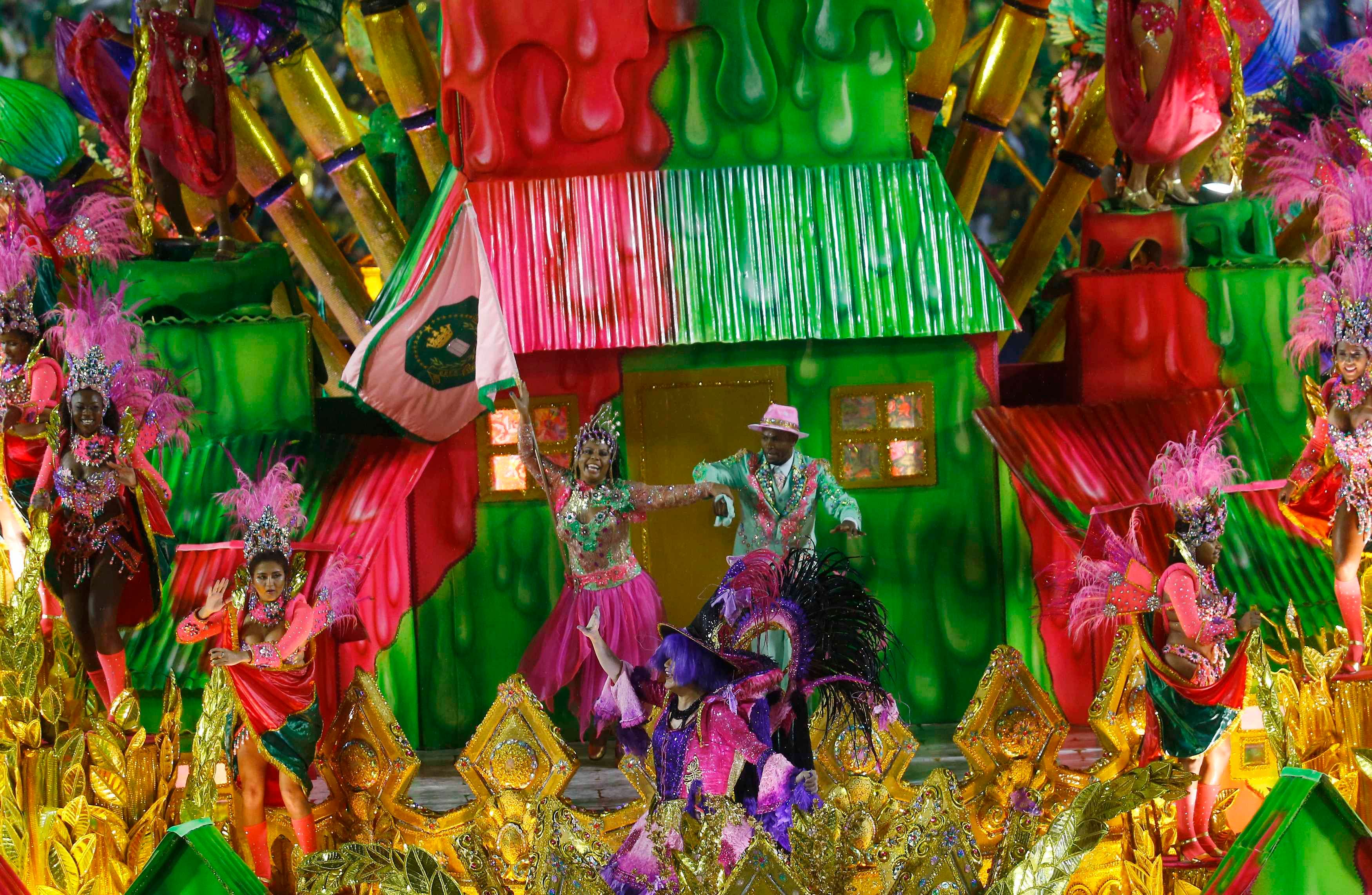Carnival spectacle tainted by violence in Brazil

Tens of thousands of people flooded Rio's streets Sunday to watch samba dancers in dazzling costumes defy downpours and bare sparkly flesh in a fantasy Brazilians dream of year round.
An estimated crowd of more than 72,000, from great-grandmothers to babes in arms, swayed and cheered on their favorite samba school in hours-long parades in Rio's annual party to end all parties.
There was thunder, lightning and driving rain pouring on thousands in viewing stands open to the sky. Many wore disposable rain ponchos.
Others got soaked, and kept dancing.
"The rain doesn't bother me. In fact, it gets us going and we crank it up a notch. It was too hot anyway," Cleberson Santos, 43, told AFP just ahead of the Viradouro parade.
Over the next two nights, 12 elite samba schools each comprising some 5,000 participants will sashay along the city's Sambadrome.
As locals and tourists alike danced their hearts out, violence cast a tragic shadow on proceedings in three other cities holding their traditional pre-Lenten festivities.
So far, at least two people have been killed and several injured across Brazil amid the festivities, authorities said.
One person was killed in the resort town of Paraty, and a man was stabbed to death in Sao Paulo, local media said.
Another shooting saw one person hurt in the northern city of Salvador, which hosts one of Brazil's most spectacular carnivals.
In Rio, the urban violence that so often scars the life of the city of more than six million has faded into the distance, at least for five days of festivities that began Friday and drew more than a million people Saturday to "blocos" street parties.
Huge crowds descended on Ipanema Beach to watch some of the most popular groups, including Simpatia e Quase Amor (friendship is almost love).
STRONG POLICE PRESENCE
Although the atmosphere has been joyful, Rio authorities have deployed 15,000 police just in case emotions boil over amid the heat mixed with alcohol.
Cordao da Bola Preta, Rio's oldest street group, had hoped to attract as many as two million people Saturday.
But Globo newspaper reported that only about a million attended, with the venue shifted slightly owing to pre-Olympic roadwork.
"I'm not sure the figures are right -- but in recent years, carnival has grown so much maybe there's nowhere else for it to go," said Luiz Benevides, a 39-year-old drummer with a top bloco playing Beatles songs with a samba flavor.
"Street parties are the best thing that could ever happen to carnival. I have stopped watching the main parades as they are now so commercialized -- though maybe the street versions will go the same way."
After Sunday and Monday night's elite parades, the jurors will elect the winners ahead of next Saturday's Parade of Champions.
A panel of judges will run the rule over the dancers and massed ranks of percussionists as well as their spectacular floats before determining who takes the crown worn currently by the Unidos da Tijuca school.
The main parades at the Sambodrome designed by Oscar Niemeyer are the culmination of months of preparations.
"The excitement builds and builds. Then it's your school's turn to go and there you are, under the lights, the noise. It's an indescribable feeling," said Megumi Kudo, a Japanese-born solo dancer with the Salgueiro elite school.
The sweltering heat means the parades, broadcast live on television in an all-night spectacular, do not start until 9:00 pm (2300 GMT).
The last school is not scheduled to finish until around 4:00 am (0600 GMT), leaving residents of the "Marvelous City" bleary-eyed -- though they will be dancing again through Monday and into Tuesday.
The first record of Carnival celebrations dates back to 1723 -- but the first samba school was not formed until 1928.
This year's Carnival comes after a difficult year for Brazil. Its economy is facing zero growth this year while flagship oil firm Petrobras is mired in a huge corruption scandal.

 For all latest news, follow The Daily Star's Google News channel.
For all latest news, follow The Daily Star's Google News channel. 



Comments